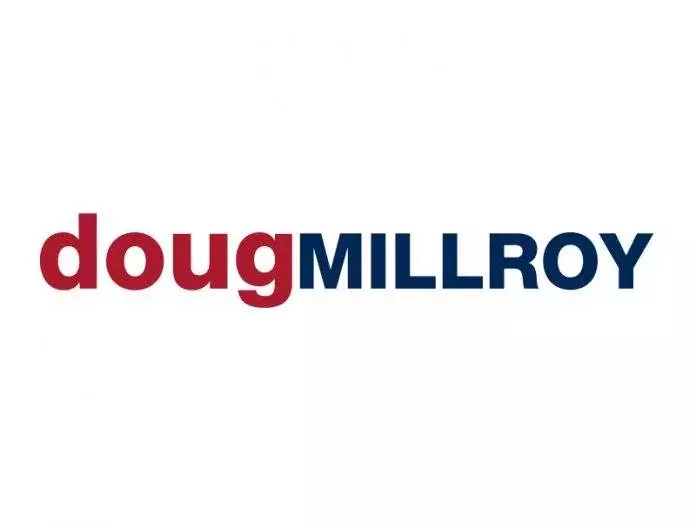I think the OPP has to loosen its criteria when it comes to deciding when an Amber Alert should be issued.
When five-year-old Nakina Boyer went missing recently, the prime suspect in her disappearance was her mother, Jeanette Niganobe.
Yet her father, Fred Robinson, who had been granted full custody of the child after a three-year court battle, told CTV Northern News that when he asked the OPP to issue an Amber Alert he was told the case didn’t meet the criteria.
It appears the OPP considered the girl to have been taken, not abducted, definitely a difference in a dictionary sense but which I see as a distinction without a difference in cases like this.
And now that the search is over, Nakina having been returned to the custody of her father after being located near Dryden in the company of her mother and a 68-year-old Blind River man, Richard Ingram, the latter description I gave appears to hold true.
Although Niganobe’s actions did not meet the OPP’s criteria to be considered an abduction originally, that is exactly the charge she is now facing.
CTV reported that in order for an Amber Alert to be issued, the following criteria must be met:
Police believe a child under 18 years of age has been abducted;
Police believe the child is in danger;
There is descriptive information about one or more of the following: child, abductor and vehicle;
There is a belief that an immediate broadcast alert will help in locating the child.
“We can say that Nakina was taken by Jeanette, but at this point believe she is still being cared for,” OPP Const. Phil Young told CTV.
The Oxford dictionary defines abduction as “the action of taking someone away by force or deception.” Taken is to remove (someone or something) from a particular place.”
Looking over the criteria for the issuing of an Amber Alert, I believe the word “taken” should be included along with the word “abducted” so it is clear they are indeed the same in situations such as the one at hand.
As the child was with her mother, who wanted her with her but who had been granted visitation only every other weekend, she could not be considered to be in imminent danger.
But there was “descriptive information about one or more of the following: child, abductor and vehicle” and there had to be “a belief that an immediate broadcast alert will help in locating the child.”
That should have been enough to issue an Amber Alert.
What harm could there be in doing it? What cost could there be to the OPP?
I just see it as a win for everybody except Niganobe and Ingram, the alleged abductors.
Niganobe, 47, from Mississauga First Nation, has been charged with abduction in contravention of a court order.
Ingram, who was behind the wheel of the truck containing the three that police eventually were able to pull overr, was charged with child abduction, flight from a peace officer, speeding, failing to stop for police and driving with pot readily available.
In 2008, Niganobe was convicted and sentenced to five years in prison for impaired driving causing the death of Donald Doucet, a Sault police constable.
She was also found guilty of impaired driving causing serious injury to Constable William Freeman and guilty of operating a motor vehicle with a blood alcohol concentration of more than 80 milligrams of alcohol per 100 millilitres of blood.
Doucet, a 12-year veteran of the Sault Ste. Marie City Police Service, died in the early hours of May 14, 2006, when a blue ‘stealth’ cruiser in which he was a passenger was hit by Niganobe’s minivan at Black Road and McNabb Street.
But my point here is not about Niganobe’s past, which is extensive, but a preference for the loosening of the strings on when an Amber Alert can be issued. The idea should be to get a person believed to be “taken” or “abducted” returned as soon as possible and the public can be a help in doing that.
IF CONSERVATIVE LEADER Pierre Polivievre believes killing the carbon tax is an election-winning strategy, he maybe should think again.
Because I can’t shake the feeling a lot of Canadians may not buy the argument.
It is this rebate thing.
Speaking from personal experience, I figure my wife Barbara and I have to be coming out ahead of the game.
Four times a year we get rebate cheques of $201.30 covering our household, in January, April, June and September.
According to the government, “the Climate action incentive payment (CAIP) is a tax-free amount to help eligible individuals and families offset the cost of the federal pollution pricing. It consists of a basic amount and a supplement for residents of small and rural communities.”
Before 2021, it was a refundable tax credit claimed annually on personal income tax returns.
Whatever the case, I believe what we get in return far exceeds what we would have paid toward the carbon tax.
Actually, I have never understood this from the outset. Why would the government give more in a rebate than it was taking in?
I am fully prepared to pay the carbon tax without the rebate. I do not believe climate change is man-made but we certainly contribute to it. As such, I am willing to pay a little to ensure my grandchildren have access to the same clear air I did.
However, as stupid I think it is when the country is so deep in debt and going further in by continuing to run deficits, I still will be cashing the cheque..







The carbon tax should stay in place but should be halved. As far as Trudeau goes we need rid of his sorry ass asap before he decimates the country any further.
80% of Canadians receive more with the carbon tax rebate than they pay in carbon tax.
…. and that figure comes from Conservative sources.
Keep the tax and axe Trudeau.
The carbon tax is reducing our quality of life. It does nothing to change the climate. It’s another tax grab, likely to make up for revenues lost from other taxes (ie cigarette tax because of fewer smokers).
The rebates are the typical government bribe (aka scam). It’s our own money (actually for most other people’s money)!
If saving the planet is so crucial why would there even be a rebate?